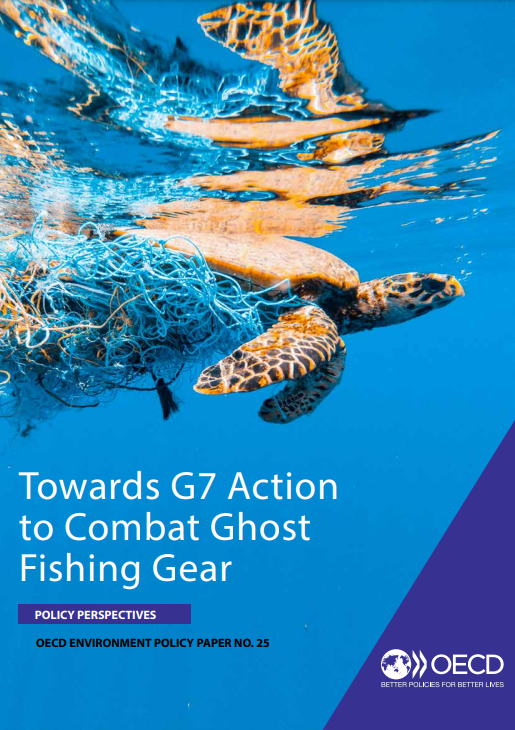Ghost fishing gear is a particularly harmful form of marine pollution because the lost gear continues to entangle and capture wildlife. The economic impacts of ghost gear include the forgone catch of target fisheries, risks to navigational safety, delays to shipping and impacts on coastal tourism. Not only does ghost fishing gear continue to capture target species, but it can capture threatened and endangered species too, as well as destroy habitats.
Modern fishing gear is mainly made of synthetic materials, in particular plastic. As such, ghost gear contributes to microplastic pollution and the spread of invasive species that can be transported over long distances.
This background paper examines the state of knowledge of the drivers and impacts of ghost gear, good practice to prevent and mitigate impacts, and sets the policy issue within the G7’s ongoing work to address marine plastic pollution.
